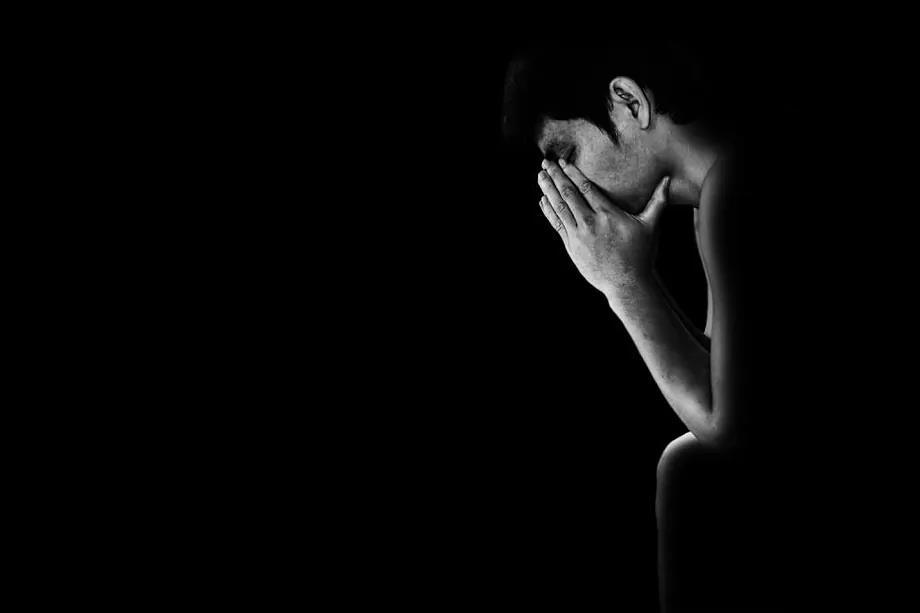The risk of suicide is higher on Mondays and increases on New Year's Day, while the likelihood of it happening on weekends and Christmas varies by country and region, according to a data analysis from 26 countries published by The BMJ.
Researchers claim that their results can help better understand short-term variations in suicide risks and define suicide prevention action plans and awareness campaigns.
According to the World Health Organization, over 700,000 people died by suicide in 2019, representing approximately 1.3% of all deaths, which was higher than the number of deaths from malaria, HIV/AIDS, and breast cancer.
Previous studies have shown that the risk of suicide varies by day of the week, but results on the association between major holidays and suicide risk are inconsistent and limited in their geographical scope.
How were the data analyzed?
To address this issue, researchers used the database of the international collaborative research network to analyze suicide data from 740 locations in 26 countries and territories from 1971 to 2019. The analysis included just over 1.7 million suicides.
Bárbara Oliván Blázquez, a professor at the Faculty of Social Sciences and Work at the University of Zaragoza, as noted by SMC, argues that the intention of the work is important for designing preventive strategies by healthcare professionals or the healthcare system (through ICT or other strategies). "For this, it is essential to have sufficient access and knowledge (and resources) to be able to act with these individuals at higher risk," she adds.
During the study period, the suicide rate was highest in South Korea and Japan, South Africa, and Estonia, and lowest in the Philippines, Brazil, Mexico, and Paraguay. In all countries, higher suicide rates were observed in men (compared to women) and individuals aged 0 to 64 years (compared to 65 years or older). In all countries, the suicide risk was highest on Mondays (approximately between 15 and 18% of total suicides) compared to other days of the week.
The weekend effect on suicide was mixed. Risks were lower on Saturdays or Sundays in many countries in North America, Asia, and Europe. However, it increased during weekends in countries in South and Central America, Finland, and South Africa.
The risk increased on New Year's Day in all countries, especially in men, while the pattern on Christmas Day varied, with marginal increases in Central and South America and South Africa, but generally lower in North America and Europe. In three countries and regions in East Asia where people celebrate the Lunar New Year (China, South Korea, and Taiwan), only South Korea showed a lower suicide risk.
From the Faculty of Health Sciences at the International University of La Rioja (UNIR), researcher Laura A. Rico-Uribe highlights that this is a study of good quality as it includes the analysis of several countries with cultural differences, "which helps us reach more global and inclusive conclusions." Additionally, it reviews various time periods, "which facilitates taking into account different historical moments, both social events and as people age," she explains to SMC.
What is the higher risk associated with?
Possible explanations include distress from work pressure at the beginning of the week and higher rates of alcohol consumption before and during New Year's Day and weekends. Further research is needed to investigate these factors, the authors say.
Beyond providing interesting data related to a serious issue like suicide, the results of this study are of interest because they highlight the role of its social determinants, emphasizes Josep María Suelves, head of the Tobacco Prevention and Control Service and Injury Prevention at the Public Health Agency of Catalonia.
"The authors present some factors that could explain why there is a higher number of suicides on Mondays and New Year's Day, such as the 'broken promise effect' that many people experience when they are exposed again to the stressful conditions of work life after the weekend or after failing to meet the good intentions with which the year is often bid farewell," Suelves explains. Also, the increased use of alcohol and other variables strongly associated with suicide like "lack of social support and gender differences could contribute to explaining the temporal variations in mortality that this study seems to confirm," Suelves concludes.
On other national holidays, the risk of suicide was associated with a slight decrease in many countries, except in countries in Central and South America, where the risk generally increased one or two days after these holidays.
These are observational findings, and the researchers acknowledge several study limitations, such as potential lack of information or incorrect classification of suicide data in some countries, and the inability to assess the impacts of different types of holidays (e.g., festivals or commemorative days) on suicide risk by country.
Rico-Uribe points out the need to be cautious when interpreting the results because, "although they include many countries, it is not advisable to extrapolate them because it is necessary to consider the different cultural characteristics, different ways of relating, variability in holiday dates, diversity of religions and beliefs, and a wide range of healthcare systems, as well as different protocols for collecting suicide data."
However, the researchers state that the findings "provide novel scientific evidence on a global scale, which can help establish more specific suicide prevention and response programs related to holidays and the day of the week."
Suelves firmly states that "suicide is a serious social and public health problem, estimated to cause the death of at least 720,000 people worldwide annually and a much larger number of affected individuals, including those who have suffered the irreparable loss of a loved one. In Spain, at least 3,952 people died by suicide last year, a figure that hides tragedies that no statistic can fully reflect."
